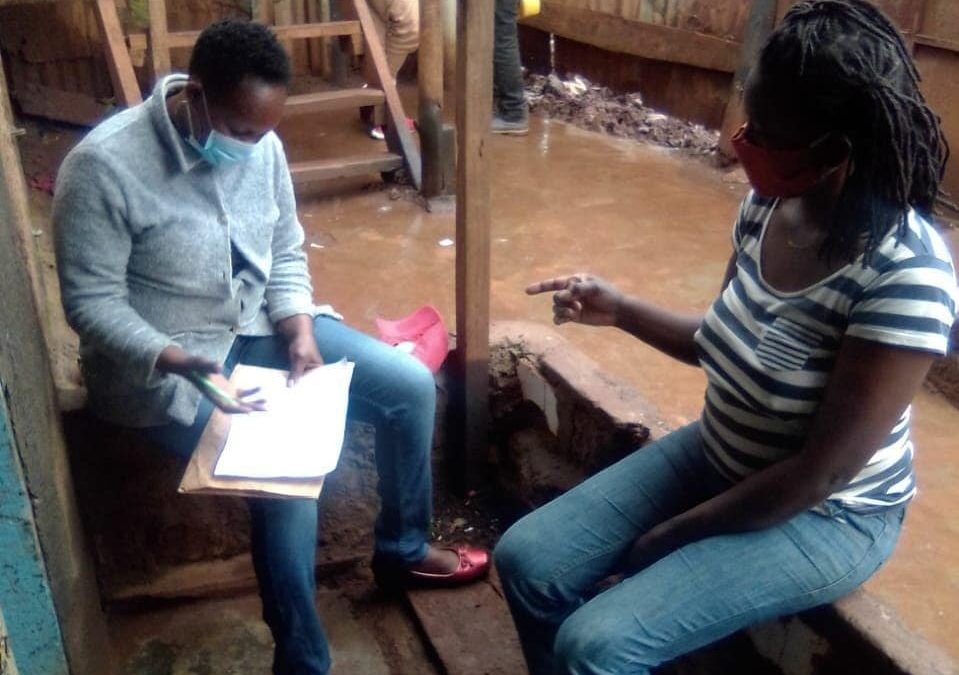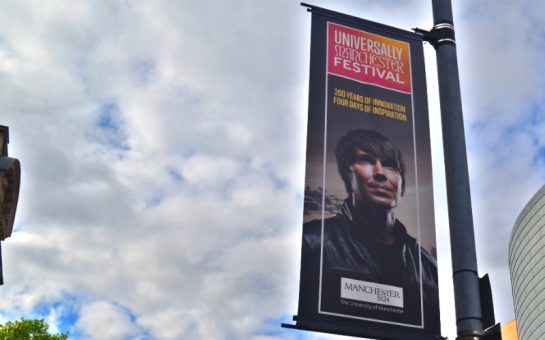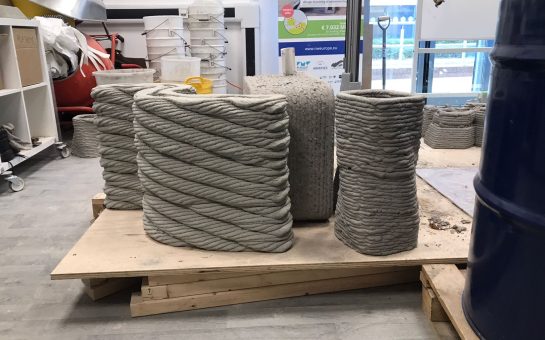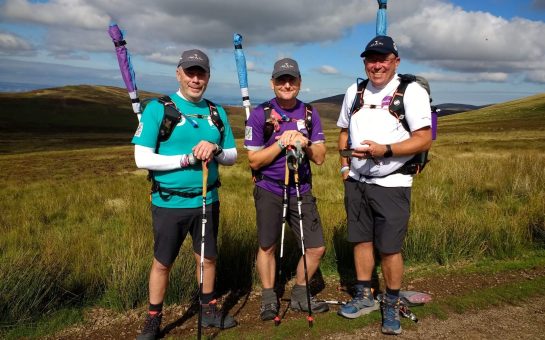“People like you and me have an unbelievable amount of privilege and therefore we have a huge amount of responsibility,” Noam Chomsky
Privilege depicts the advantage that one person or society has over another. Often, it is not recognised that one person or society is more privileged than another until both are tested in their ability to deal with adversity.
If this year has done anything, it should have taught us that.
Lockdown in a nation like the UK relies on the capability of people to work from home, and it is centred on a dependence on our government to be able to provide financial support.
We rely on the latest technologies, medical supplies and resilient health care systems. Granted, at times we suffer at the hands of this virus, but our privilege lessens the suffering.
Societies entrenched in poverty do not have such luxuries as these. High population densities make interventions like social distancing near-impossible.
Limited access to soap and water result in hygiene levels that are far from those required in the midst of a pandemic. But at the root of it all: people simply cannot afford to not work.
For these people, dying from starvation is a much more imminent risk than dying from a respiratory virus.
Our privilege means in most instances, we will never have to deliberate this toss up, and whilst we may live in scary times, our scary is nothing in comparison to their scary.
In Kenya, a historically impoverished country in Eastern Africa, the spread of coronavirus in informal settlements is causing huge challenges for the authorities.
Conventional approaches of mitigating the disease, which we are more than familiar with, are futile. With a health care system that is understaffed and lacking provisions, these communities seem at the mercy of the virus.
Researchers from the University of Manchester are looking into how non-medical interventions can effectively limit the spread of coronavirus. The team is led by The University of Manchester’s Professor Mahesh Nirmalan, and includes Dr Jonathan Huck and Professor Diana Mitlin alongside the University of Nairobi and the NGO ADRA.
Through their research, it is hoped that communities such as these will be helped in not only this outbreak, but any future outbreaks of respiratory disease, which they are so unkindly prone to.
Team lead, Professor Mahesh Nirmalan told me: “The populations in these settlements are inherently very poor, they are malnourished and therefore they are very susceptible.
“One could call this the toxic triad; the greater susceptibility of the population, the increased potential for spread, and the grossly adverse outcomes because of existing poor infrastructures.”
Dr Jonathan Huck, Director of Social Responsibility for the School of Environment, Education and Development at the University of Manchester, stressed: “We’re in situations where people can’t afford enough water everyday, nevermind to repeatedly wash their hands.”
Our “Hands, face, space” mantra couldn’t be more polar from this reality. Hand washing has quickly become a ritual. Our privilege dictates that we have running water in our homes; we have soap, we have heat.
While not apparent to us as a luxury, this entitlement means we have mercilessly washed our hands, lathered them in soap and mimed to the tune of ‘Happy Birthday’ and all the while, communities on this same planet cannot afford basic requirements like these.
Dr Huck continued: “I don’t think it’s a question of how dangerous people think the virus is, it’s a question of necessity. It’s that you know you might get sick if you go out and get coronavirus but you’ll definitely get sick if you don’t eat and drink water. These people have to go out and work and have to go out and carry on.”
One of the first terms coined by the UK government was the slogan: “Stay at home, protect the NHS, save lives”.
Again, the guidance from our government isn’t applicable to countries such as Kenya. It further highlights the disparity between our world and theirs. Staying at home is unachievable. They don’t have a national health service to protect. They would endanger their family’s lives through not working.
Working alongside the NGO, the researchers have gathered a large amount of information from people living in three informal settlements in Kenya. The information relates to the behaviours of these people and their attitudes towards the pandemic.
Non-medical implementations have been made and data will be collected to assess the relative efficacy of different approaches. They have also worked to distribute over 46,000 locally-manufactured face coverings to residents.

James Astleford, ADRA Kenya Country Director told me: “We believe that anything that will reduce the transmission of this virus is extremely important.
“We, as an agency, along with every other body of goodwill, support the Government efforts to contain the spread of the disease by social distancing, washing hands and mask wearing.
“We endeavoured to work with many different groups and societies trying to ensure that everyone was getting the same message.”
The Multimodal Public Health Bundle the team has implemented includes hand washing, mask wearing and social distancing.
Dr Huck added: “We don’t want to try to replace or change what other people are doing or to play the saviour. The Kenyan government is doing loads of great work themselves. We’re trying to work within the resources that are available and give people realistic goals.
“We want local solutions. We want things that are going to make a lasting change, and these things need to be sustainable.”
I spoke to Professor Diana Mitlin, part of the University of Manchester’s team, who drew my attention to the issues of external groups.
“What often happens if it’s done by external groups who don’t understand local realities is it’s done in a way which is completely ineffective because it doesn’t take into account the constraints in people’s lives.
“Clearly if you’re advising people how they can socially distance, and you know that most of them are living in rooms where they share that room with three or four other people, you deliver the advice differently from if you think that they can just have their own rooms.”
Our privilege manifests in a series of ways. Whether that be greater wealth, better health care or more provisions. Arguably, the greatest privilege we will ever have is our education.
Education may seem a ‘right’ in this country. Something that it is imperative we receive. Something that is ingrained into our society. We are entitled enough to receive a first-rate education.
But again, in this respect, our society is worlds away from Kenyan society. Many students there are unable to continue into secondary education due to their families needing them to go to work. Their education isn’t accessible in the way that ours is.
In the words of Nelson Mandela, “Education is the most powerful weapon which you can use to change the world.”
Education changes our insight, our attitude and our behaviour. It is invaluable. It means we believe in science and we largely discern conspiracy. For the most parts we trust in health advice, we trust in vaccines, we trust in evidence.
Because of this, we are in a much better position to listen to and act on what is being said by our government and health experts.
During this pandemic we have seen the circulation of numerous conspiracy theories and misinformation. This threatens not only the integrity of science, but the health of populations.
As soon as people stop listening and lose trust in their governments, all cohesion amongst communities is lost. Education and understanding are the two things that are imperative for people to distinguish conspiracy from fact.
In Kenya, the team has provided training to over 220,000 people in these communities so far. They have educated them on how respiratory diseases spread and provided information on respiratory hygiene, addressing the cultural challenges posed by wearing face coverings.
Professor Mitlin said: “The right kind of education is really important, making sure people know what to do to reduce their risks.”
Dr Huck added: “We’re attempting to demonstrate that these kinds of interventions are giving people the education and the information to change perceptions and understanding.
“We want to evidence what combinations of interventions are going to be sufficient to save lives and make sure they’re practical so they can be implemented in lots of different settings.
“If we can make any step it should be towards helping these communities become more resilient and safer in the face of these challenges, as we know they’re going to continue to see them in increasing frequencies.”
The researchers are entering their final stages of data collection which should help in understanding the relative impact of the different approaches in limiting the spread of the virus.
The data will act as evidence-based guidance and will ensure non-medical interventions are more widely accepted and implemented effectively.
Professor Nirmalan told me: “Change can only happen if people believe in the change that you are proposing.
“The best way to convince people is to actually show them the evidence in a comparable setting that the intervention works.”
Professor Mitlin voiced: “There is never going to be enough external finance to address all the needs of these communities.
“As soon as you give the idea that external finance is going to solve the problem you make some people wait because in a sense their fate is taken out of their hands. That’s why building up the credibility of local groups is really important.
“I hope we have contributed to an understanding by the government that you can support communities to respond to these crises.
“Governments have a really important role to play but unless they work with local organisations and unless they get local buy into things like social distancing they will not succeed.”
Professor Mahesh posited: “When you go into these environments saying that we want to do this work, you invariably raise expectations.
“If those expectations cannot be met and the momentum cannot be maintained, we will be doing a big disservice to the people that we want to help.
“Now the next big challenge is maintaining that momentum.”
James Astleford concluded: “This intervention can only be a part of the larger answer that is needed.
“Going around getting people to wear masks is good. Helping people to get out of overcrowded settlements is a better long-term solution.”
With an unclear future ahead, and the threat of other pandemics, suffering will continue. This is inevitable. But with intervention and education, populations such as these are given the best chance to deal with not only this outbreak, but with any future outbreaks of respiratory diseases.
Being granted a life of security shouldn’t be an entitlement. It shouldn’t be something that only the most privileged of us can rely on. Projects such as this that help communities without posing as the ‘saviour’ are the best hope of providing stability during times of adversity.
To donate to this project or to find out more, please visit: https://www.adrakenya.org/
Photo courtesy of University of Manchester



